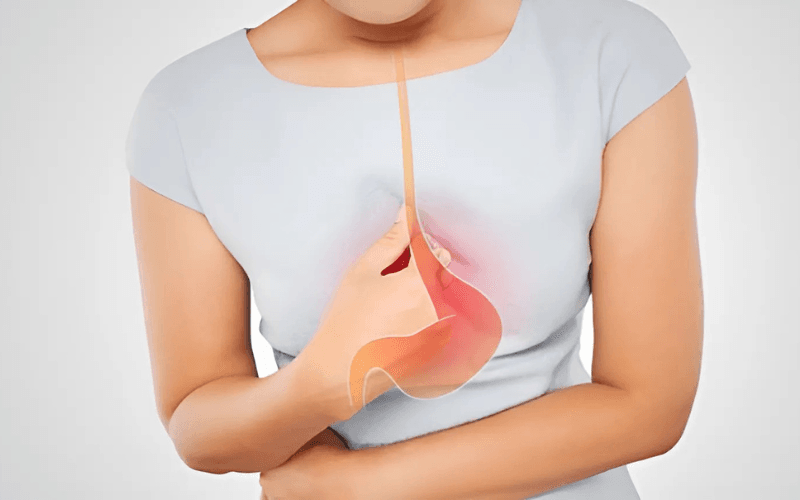Gastroesophageal reflux disease (GERD) is a condition where stomach acid frequently flows back into the esophagus, causing discomfort and potential damage. Learn about causes, symptoms, treatments, and prevention tips to manage GERD effectively.

Introduction to Gastroesophageal Reflux Disease (GERD)
Acid reflux, also known as gastroesophageal reflux disease (GERD), affects millions worldwide. It occurs when stomach acid consistently flows back into the esophagus, leading to symptoms like heartburn, nausea, and chest pain. Without proper management, GERD can result in serious complications. This article explores GERD’s causes, symptoms, treatment options, and preventive measures to help protect your digestive health and improve your quality of life.
What is Gastroesophageal Reflux Disease?
GERD happens when stomach acid frequently flows back into the esophagus, the tube connecting your mouth and stomach. This acid reflux irritates the esophageal lining and, if persistent, may cause health problems. While occasional acid reflux is common, frequent episodes signal GERD.

Causes and Risk Factors of GERD
The primary cause of GERD is the malfunction of the lower esophageal sphincter (LES), a ring of muscle that opens to allow food into the stomach and closes to prevent acid from returning to the esophagus. When the LES weakens or doesn’t close properly, acid reflux occurs. Factors increasing GERD risk include obesity, pregnancy, delayed gastric emptying, hiatal hernia, and connective tissue disorders like scleroderma.
Lifestyle habits such as smoking, large or late-night meals, high-fat or fried food consumption, alcohol and coffee intake, and certain medications like aspirin or NSAIDs can worsen acid reflux symptoms.

Recognizing Symptoms of GERD
Common GERD symptoms include heartburn—a burning sensation in the chest after eating—accompanied by sour taste in the mouth. Patients may also experience nausea, upper abdominal or chest pain, difficulty swallowing, a sensation of a lump in the throat, excessive saliva, or bad breath. Hoarseness and chronic cough can also occur.
Nocturnal acid reflux may trigger persistent coughing, laryngitis, disrupted sleep, and exacerbate asthma symptoms.
Complications of Untreated GERD
If left untreated, GERD can lead to chronic esophagitis (inflammation of the esophagus), ulcers, and Barrett’s esophagus, a precancerous condition that increases esophageal cancer risk. Other complications include esophageal strictures causing swallowing difficulties, laryngitis, and worsened respiratory issues such as asthma.
Effective Treatment Methods for GERD
Treatment often involves medications and lifestyle changes. Antacids neutralize stomach acid, relieving heartburn and indigestion quickly. Proton pump inhibitors (PPIs) reduce acid production, protecting the esophageal lining over time. Prokinetics help speed gastric emptying, and mucosal protectants shield the stomach lining.
In severe or complicated cases, surgical options like laparoscopic fundoplication may restore LES function.
Prevention and Lifestyle Management of GERD
Preventing GERD includes avoiding foods and drinks that trigger acid production or relax the LES, such as carbonated beverages, alcohol, coffee, chocolate, spicy and fatty foods, citrus fruits, and tomatoes. Eating smaller, more frequent meals reduces stomach pressure, while eating slowly and chewing thoroughly aids digestion.
Staying hydrated, maintaining a healthy weight, avoiding tight clothing, elevating the head while sleeping, managing stress, and regular exercise are also beneficial in controlling GERD symptoms.
When to See a Doctor
Seek medical attention if you experience severe or persistent chest pain, difficulty or pain swallowing, vomiting blood or black material, unexplained weight loss, chronic hoarseness or cough, or worsening asthma symptoms. Diagnostic tests like endoscopy, esophageal pH monitoring, and esophageal manometry can confirm GERD and guide treatment.

Conclusion
GERD is a common digestive disorder that, if unmanaged, can lead to serious health issues. Understanding its causes, recognizing symptoms early, and adopting effective treatment and lifestyle habits can greatly improve digestive health and quality of life. Consult your healthcare provider if symptoms persist or worsen to ensure appropriate care.
If you want to learn more about supporting digestive health, visit Help Others Overcome Their Acid Reflux | Member Area and Video Courses for expert guides and resources.
